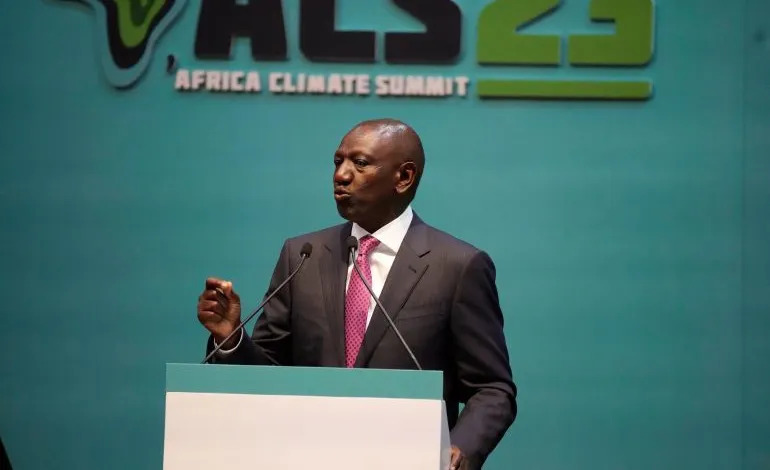African political and business leaders have adopted a declaration to address climate challenges in Africa on the final day of a major climate summit in Kenya’s capital, Nairobi
The adoption – announced on Wednesday by the summit’s convener, Kenyan President William Ruto – proposes new global taxes and reforms to international financial institutions to help fund climate change action in a declaration that will form the basis of their negotiating position at November’s COP28 summit.
The Nairobi Declaration capped the three-day Africa Climate Summit which was dominated by discussions of how to mobilise financing to adapt to increasingly extreme weather, conserve natural resources and develop renewable energy.
Ruto has been spearheading a new narrative, focusing on Africa’s switch to clean energy even as the continent reels from climate-related disasters.
“In Africa, we can be a green industrial hub that helps other regions achieve their net zero strategies by 2050,” he said at the summit. “Unlocking the renewable energy resources that we have in our continent is not only good for Africa, it is good for the rest of the world.”
Advocates have long called for rich carbon polluters to honour long-standing climate pledges for poorer and more vulnerable nations.
According to the United Nations, the continent contributes only about 2-3 percent of global emissions but suffers the most from the changing climate. Extreme weather events like drought – in the Horn of Africa – and flood – in parts of Central and West Africa – have become more frequent in recent years.
“Renewable energy could be the African miracle but we must make it happen. We must all work together for Africa to become a renewable energy superpower,” UN Secretary-General Antonio Guterres said on Tuesday at the summit.
He also urged leaders at the G20 – the 20 advanced economies meeting in Delhi, India this week – to commit to reaching net zero before 2040.
Ruto says Africa is well placed to take advantage of the need to move away from carbon-spewing fossil fuels, boasting a young population, vast renewable potential and natural resources.
This includes some 40 percent of global reserves of cobalt, manganese and platinum crucial for batteries and hydrogen fuel cells.





